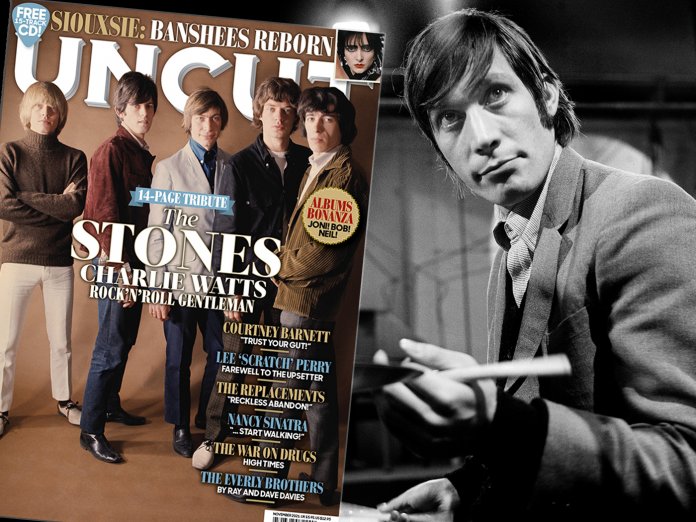When The Rolling Stones take the stage at St Louis on September 26, they will be without their drummer – described by many as “their heartbeat” – for the first time since 1963. He had been ill – an unspecified “medical procedure” had kept him out of the Stones’ upcoming run of dates – but at the time, Watts appeared to shrug off an inconvenient situation with typical understatement: “For once my timing has been a little off,” he said. “I am working hard to get fully fit but I have today accepted on the advice of the experts that this will take a while.” This was on August 5. Nineteen days later, on August 24, the news broke that Charlie Watts had died aged 80.
As a famously modest man, what would have struck Watts as preposterous was the outpouring of emotion from the public and his peers: “I’ve always loved you, beautiful man,” said Paul McCartney, encapsulating the tremendous depth of feeling many felt towards Watts. A steady hand, a crisp collar, the Wembley Whammer was meticulous in all aspects of his life – a stoic and unshowy counterpoint to the raucous rigmarole of the Stones, the calm centre of the hurricane.
Watts first played alongside Brian Jones, Mick Jagger and Keith Richards in Alexis Korner’s Blues Incorporated. He occasionally sat in with the nascent Stones, making such a difference to their sound that they begged him to join full-time; Keith Richards once claimed that one early motivation was to play enough shows to afford Watts’
£5 weekly salary. Watts officially joined the Stones in 1963, a few weeks after Bill Wyman. The final member of the band’s classic lineup to arrive, he outlasted Wyman, Jones and Ian Stewart, never once missing a show.
A couple of years older than his singer and lead guitarist, Watts spent those extra years learning his craft by playing to jazz records. Born in London in 1941 and raised in Wembley, he reached his teens before either Elvis or the skiffle revolution hit. Fascinated by drummers like Chico Hamilton, he got his first drum kit in 1955. He began playing in jazz bands, only making the switch to R&B when he joined Alexis Korner’s Blues Incorporated in 1962. He took with him some of jazz’s style – musical as well as sartorial – playing rather than pounding his drums, offering a different approach to the showmanship of fellow superstar drummers Keith Moon, John Bonham and Ginger Baker. His counter-rhythms and innovative use of the snare immediately changed the Stones’ sound from being mere R&B copyists into something more unusual and sophisticated – a rhythm that the band described as “shuffle and eighths” in reference to Watts’ shuffling beat and the fast eighths Wyman played alongside. Those jazz chops brought a groove and elegance to Watts’ playing that synched with his appearance – the debonair drummer who could finish a two-hour show without a hair out of place.


